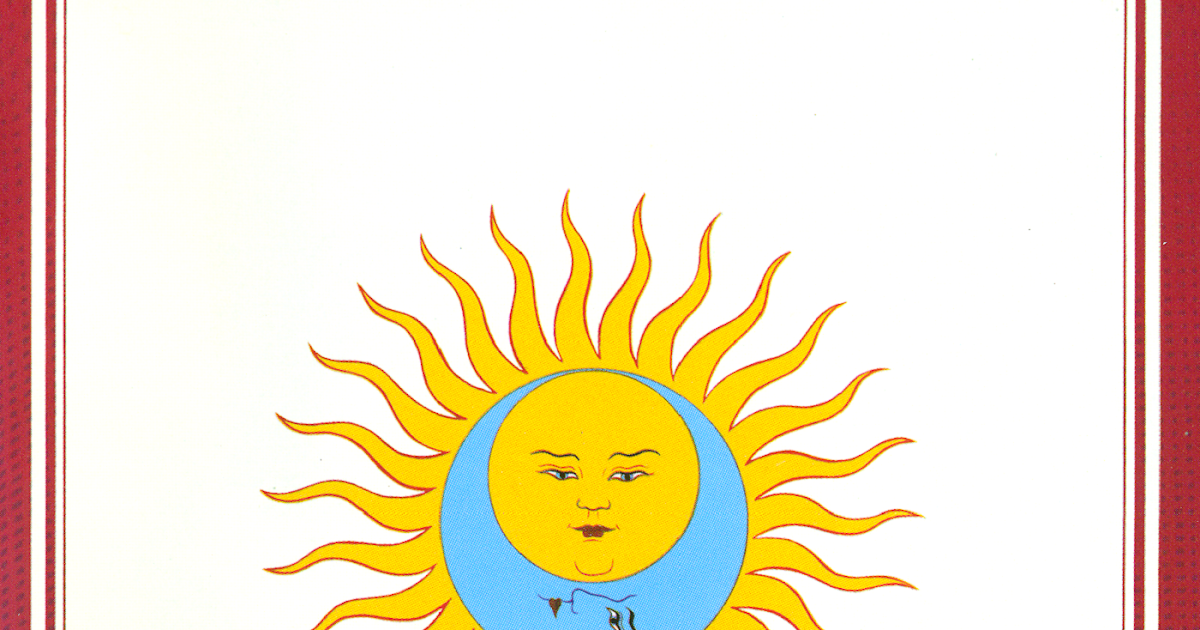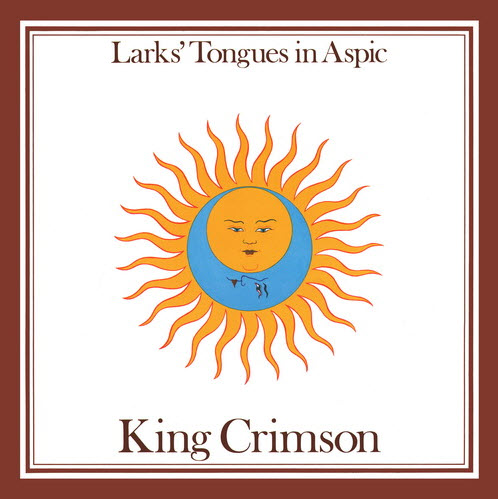
King Crimson Larks Tongues In Aspic Blogspot
Larks' Tongues in Aspic is the fifth studio album by the English progressive rock group King Crimson, originally released in 1973. This album is the debut of King Crimson's third incarnation, featuring original member and guitarist Robert Fripp and new members John Wetton (vocals, bass guitar), David Cross (violin, Mellotron), Jamie Muir (percussion), and Bill Bruford (drums). It is also a key album in the band's evolution, drawing on Eastern European classical music and European free improvisation as central influences. [RYM #153 overall].

Akta kanun tanah negara 1965 pdf. 1 Larks' Tongues in Aspic (Part 1) 2 Book of Saturday 3 Exiles 4 Easy Money 5 The Talking Drum 6 Larks' Tongues in Aspic (Part 2) 7 Larks' Tongues in Aspic (Part 1) (Alternative Mix) [bonus track] 8 Book of Saturday (Alternative Take) [bonus track] 9 The Talking Drum (Alternative Mix) [bonus track] น้อยลง.
Over the past few years, I've spent a lot of time self-educating re: rock from the ’70s. We always hear about the ’60s, specifically the end of the ’60s, as a rock heyday, but the next decade seems to me to be the One, when all the warning shots had been fired and the premier bands were all just, to use a term coined by, showing up to crush.
As usual, I speak only for myself, oriented according to my inescapable biases, biases that go by names like Black Sabbath (who started out strong but attained some kind of exalted state of fried-mind excess ), Thin Lizzy (who issued their own that same year, just one of at least five all-time-great LPs they'd release throughout the decade) and Led Zeppelin (let's stick with the ’75 theme, and take a moment to reflect on two of the sickest grooves ever recorded: exhibits and ). I will love all of these bands/records for as long as I am on Earth, but at this point, they are like comfort food to me: known quantities with a predictable, though not commonplace effect, i.e., they yield ecstasy the way great coffee yields a buzz. But much of my RLT (recreational listening time) over the past week has been spent chasing down a different kind of feeling, furnished by a band that thrived contemporaneously to the woolly rock mammoths enumerated above, but was on, as they say, a whole different trip. I'm speaking about King Crimson, specifically the version of King Crimson that existed—with more or less stable personnel, give or take percussionist Jamie Muir and violinist David Cross—from (I think I've got this right) the summer of 1972 through the fall of ’74. Aside from perennial KC mastermind Robert Fripp, this lineup was all about bassist-vocalist John Wetton and—I feel like I need to cross myself while typing this, so large does this musician currently loom in my personal pantheon—drummer Bill Bruford, who reported for Crimson duty as soon as he had finished laying down tracks for. If this specific version of King Crimson occupies a different galaxy than the Rock Gods I mentioned above, the Sabbaths, Zeppelins and Lizzys, it also has surprisingly little to do with what I think of as capital-p Prog.